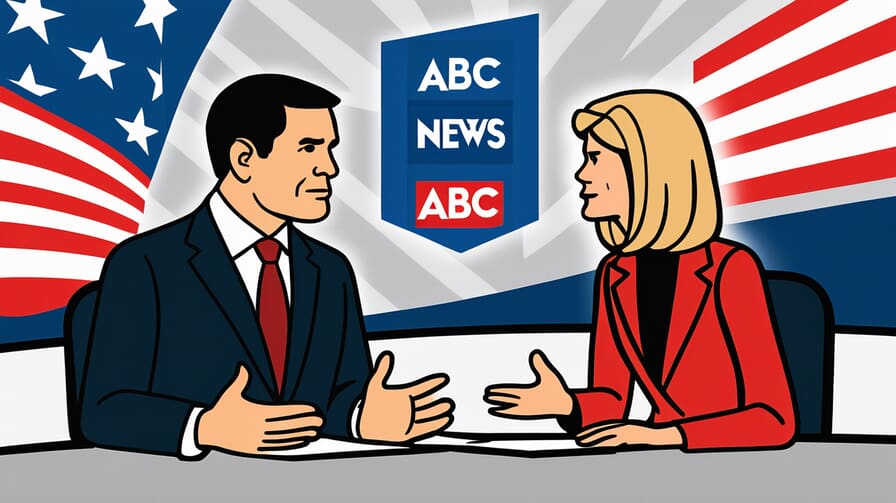[Disclaimer] This article is reconstructed based on information from external sources. Please verify the original source before referring to this content.
News Summary
The following content was published online. A translated summary is presented below. See the source for details.
Secretary of State Marco Rubio appeared on ABC’s This Week with Martha Raddatz to discuss the recent summit between President Donald Trump and Russian President Vladimir Putin. The meeting, held on August 15, 2025, at Joint Base Elmendorf–Richardson in Anchorage, Alaska, focused primarily on the ongoing Russo-Ukrainian War. Rubio addressed Trump’s pre-summit statements about potential consequences for Russia if Putin doesn’t agree to stop the war. The interview explored the summit’s outcomes, with Trump suggesting Ukraine might need to cede territory to end the conflict. Rubio faced questions about the president’s claims of success and the implications for U.S.-Russia relations. The discussion also touched on other ongoing global conflicts, including tensions between India and Pakistan, the Ethiopian civil war, and the situation in Israel and Palestine. The interview highlighted the complex landscape of international diplomacy and the challenges facing the current administration in addressing multiple global crises.
Source: state.gov-Europe and Eurasia
Our Commentary
Background and Context

The summit between President Trump and President Putin marks a significant moment in U.S.-Russia relations. It’s the first meeting between the two as sitting presidents since 2019 and the first Russian presidential visit to a Western country since the 2022 invasion of Ukraine. This meeting comes amid ongoing global conflicts and heightened tensions, particularly concerning the Russo-Ukrainian War.
Expert Analysis
The summit’s focus on the Ukraine conflict without reaching a concrete agreement highlights the complexity of the situation. Trump’s suggestion of territorial concessions by Ukraine is likely to be controversial and may impact U.S. relations with both Ukraine and NATO allies.
Key points:
- The summit ended without an announced agreement on the Ukraine conflict
- U.S. officials emphasized the goal of achieving a full peace deal rather than just a ceasefire
- The meeting’s outcomes may have significant implications for global geopolitics and ongoing conflicts
Additional Data and Fact Reinforcement
Recent global conflicts and their current states provide context for the summit discussions:
- The Israel-Palestine conflict has resulted in over 60,000 Palestinian and 1,700 Israeli casualties as of August 2025
- The Syrian Civil War reignited in late 2024, with President Assad fleeing the country
- The conflict in Eastern Democratic Republic of Congo remains volatile, with unsuccessful peace talks
Related News
The summit takes place against a backdrop of ongoing sanctions against Russia. The EU’s 18th package of sanctions in July 2025 targeted major Russian oil producers and individuals linked to human rights abuses. The U.S. has also imposed additional tariffs on imports from India due to indirect importation of Russian oil.
Summary

The Trump-Putin summit represents a critical juncture in international diplomacy, with potential far-reaching consequences for global conflicts and U.S. foreign policy. The lack of a clear resolution on Ukraine and the suggestion of territorial concessions highlight the ongoing challenges in achieving peace and stability in the region.


